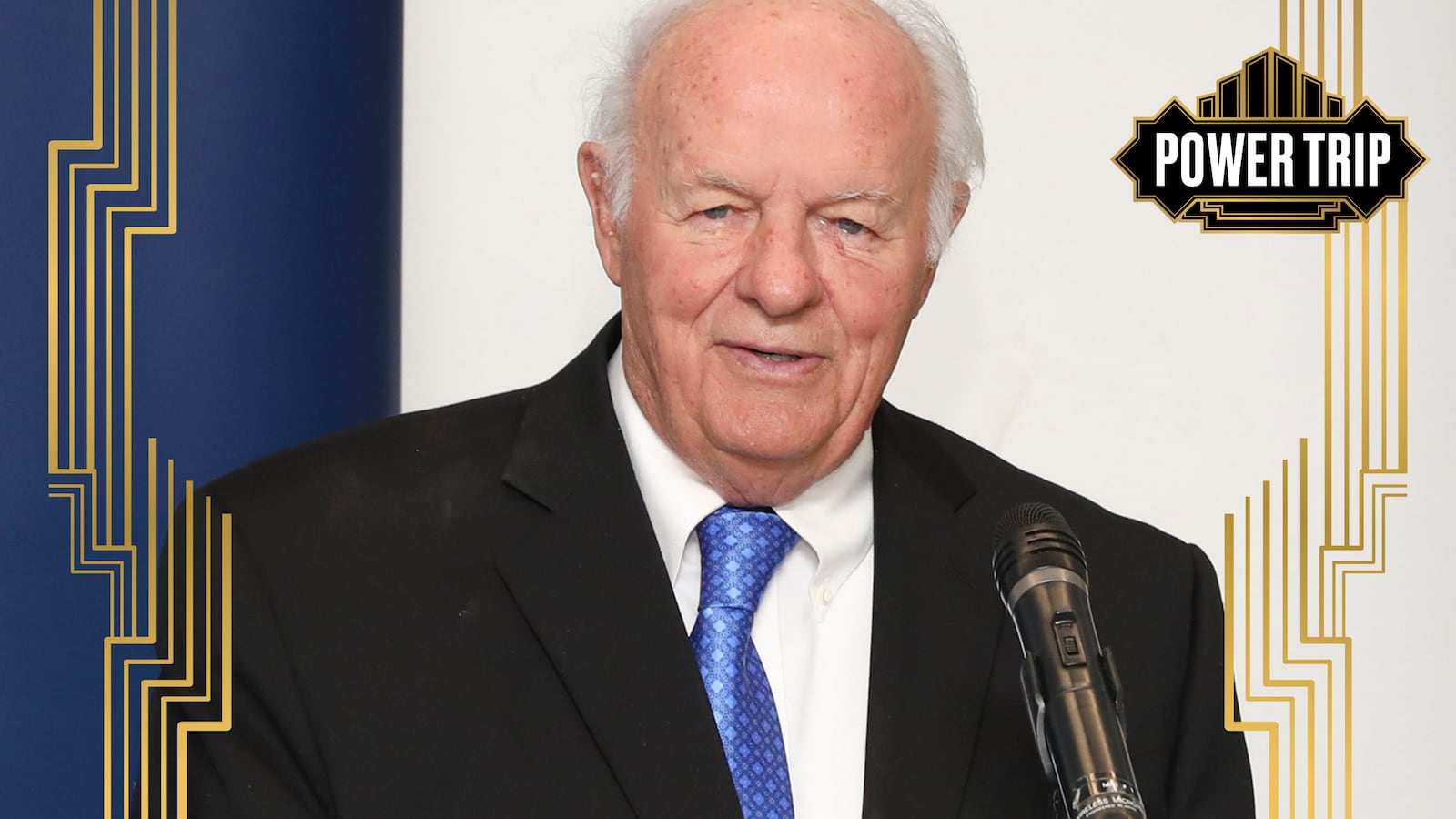In an act of pure thoughtfulness, or thoughtful public relations, the billionaire T. Denny Sanford pledged an additional $350 million to a South Dakota health system that already bears his name. The gift will be used to establish “virtual care centers” for patients in rural and underserved areas across the region.
For more than a year, Sanford has faced an onslaught of negative press over reports that he was being investigated for possession of child pornography. No charges have been filed in that case. Sanford’s attorney previously told the Argus Leader that “[the] authorities responsible for investigating allegations obviously did not find information or evidence that supported or resulted in any criminal charges.”
Just last month, the South Dakota Supreme Court heard arguments about whether to unseal investigative files allegedly related to that probe, including a search warrant and affidavits. According to the Associated Press, the state’s attorney general, Jason Ravsnborg, believed he had adequate evidence to charge Sanford. He referred the case to federal authorities, though if the Department of Justine declines to prosecute, the state could still take action, the outlet said.
In March, after Sanford made a separate $300 million donation to the health system, its CEO, Bill Gassen, publicly stood by him. “We’re very confident in the partnership with Mr. Sanford,” Gassen told South Dakota Public Broadcasting. “We took those media reports seriously and are satisfied that they were not substantiated.” Through a spokesperson, Gassen offered a similar statement to The Daily Beast on Thursday.
The comments, and the ongoing financial relationship, have raised some eyebrows.
“My question is always, ‘What policy is in place at the institution to determine who they will accept gifts from and for what purposes?’” Jay Frost, a philanthropy consultant with decades of experience advising nonprofits, told The Daily Beast. Frost said he was unfamiliar with the specifics of Sanford’s gift, but that the healthcare system was taking a clear stance. “What surprises me is if there is a donor [with] an issue of anything involving children, then that sensitivity, you would think, would be higher.”
Reached by phone, Sanford said of the gift, “The inspiration is plain and simply, it’s one of the best health organizations in the world, and we’re going virtual.” Asked about the recent supreme court hearing, he said “no comment” and hung up the phone.
Sanford, 85, is the richest person in South Dakota, with a net worth of $3.4 billion, according to Forbes. In 2007 he famously said that he wanted “to die broke” by donating his money to charity. “I like to think I have enough years left to spend all this money,” he said.
Despite giving away more than $1 billion, much of it to children’s causes, Sanford has only grown richer. His fortune is up more than $500 million since he made the pledge.
The origin of Sanford’s money has also attracted scrutiny. He serves as chairman of United National Corporation, whose subsidiary First Premier Bank is known for high-interest credit cards. Critics have alleged that the company has targeted vulnerable or unsophisticated customers, who are sometimes left paying exorbitant fees.
In 2010, The Daily Beast reported on the company’s business practices after its MasterCard offering was labeled the worst credit card in America by the nonprofit behind Consumer Reports.
First Premier defended its products as a springboard for customers with bad credit to improve their financial position. “The primary purpose of our credit card is to provide these individuals with a tool to help them begin to demonstrate positive financial patterns to the major credit bureaus,” an executive, Miles Beacom, said at the time.
As of 2018, First Premier boasted that it was one of the 20 most profitable banks in the country with at least $1 billion in assets.
Sanford had purchased First Premier’s predecessor in 1986, the most lucrative step in a winding path to success. His mom died of breast cancer when he was four years old; his dad died while he was in college. After graduating, Sanford worked in sales before starting his own company, a sealant and adhesives business called Contech, which he sold for $28 million in 1982.
The alleged investigation has cast a pall over Sanford’s reputation, at a time when organizations are facing a broader reckoning over who gives them money. The Sackler family, the billionaires behind OxyContin, have watched their name fall from a number of prestigious perches, from the Louvre to NYU to Tufts. The director of the MIT Media Lab, meanwhile, resigned in 2019 following revelations that he surreptitiously accepted donations from the sex offender Jeffrey Epstein.
Sanford, who has a number of residences across the country, remains a powerful figure in South Dakota. His lawyer, Marty Jackley, is the state’s former attorney general, and his name is plastered across Sioux Falls. In front of one of his namesake hospitals, a bronze statue depicts Sanford kneeling with members of his family. The plaque is titled “For the Love of Children.”







